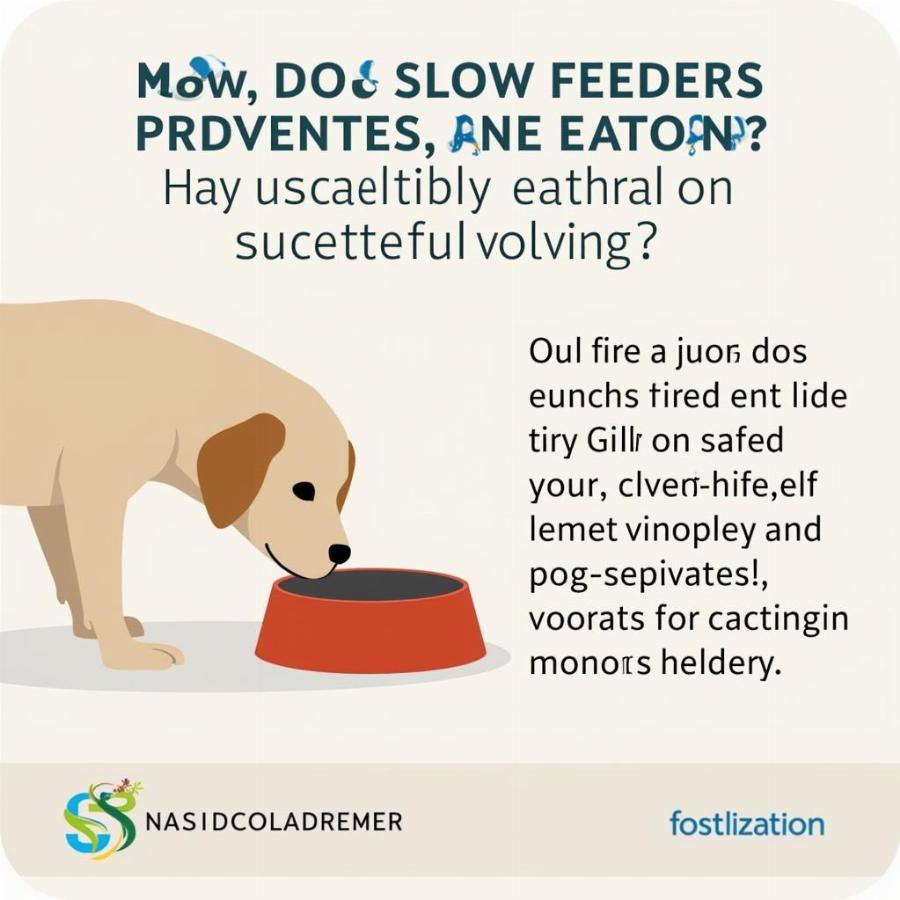If your dog is throwing up undigested food 8 hours after eating, it’s understandably concerning. This could signal a range of issues, from something as simple as eating too fast to more serious underlying medical conditions. Understanding the potential causes and knowing when to seek veterinary attention is crucial for ensuring your furry friend’s well-being. This article will explore the common reasons why a dog might vomit undigested food hours after a meal, what you can do to help, and when it’s time to call your vet.
Why is My Dog Vomiting Undigested Food Hours After Eating?
Several factors can contribute to delayed vomiting of undigested food. One possibility is that your dog has simply eaten too much or too quickly. This can overload their stomach and lead to regurgitation, which is different from vomiting. Regurgitation is a passive expulsion of food, often appearing tubular and undigested, whereas vomiting is a more forceful action involving abdominal contractions. Another potential cause is food intolerance or an allergy. Certain ingredients can irritate your dog’s digestive system, causing them to throw up hours later. Additionally, conditions like gastrointestinal blockages, inflammatory bowel disease (IBD), or pancreatitis can also result in this symptom. Even stress and anxiety can play a role in digestive upset.
What Should I Do if My Dog Throws Up Undigested Food 8 Hours Later?
First, assess the situation. Is this a one-time occurrence, or has it been happening regularly? If it’s an isolated incident, monitor your dog closely for any other symptoms like lethargy, loss of appetite, diarrhea, or abdominal pain. If your dog seems otherwise healthy and playful, it might be a simple case of overeating. However, if the vomiting persists, becomes more frequent, or is accompanied by other symptoms, it’s essential to seek veterinary care immediately.
When is it an Emergency?
Certain signs indicate a more serious problem requiring immediate veterinary attention. These include:
- Frequent vomiting: More than twice in a 24-hour period.
- Bloody vomit: This can signify a serious issue in the digestive tract.
- Lethargy or weakness: Could indicate dehydration or a more severe illness.
- Abdominal pain or distension: Suggests potential blockage or inflammation.
- Difficulty breathing: A potentially life-threatening complication.
- Changes in gum color (pale or blue): Indicates poor circulation.
Home Care and Prevention
While veterinary attention is crucial for diagnosis and treatment, there are some things you can do at home to help prevent future episodes:
- Feed smaller, more frequent meals: This can help prevent overeating and aid digestion.
- Use a slow-feed bowl: These bowls encourage slower eating, reducing the risk of regurgitation.
- Ensure fresh, clean water is always available: Especially important if your dog has been vomiting.
- Transition to a new food gradually: Sudden dietary changes can upset the stomach.
How Can I Help My Vet Diagnose the Problem?
Be prepared to provide your vet with a detailed history of your dog’s eating habits, recent dietary changes, any other symptoms, and the frequency and appearance of the vomit. This information can be invaluable in helping your vet reach a diagnosis.
 Preventing Dog Vomiting with a Slow Feeder
Preventing Dog Vomiting with a Slow Feeder
Conclusion
Dog throwing up undigested food 8 hours after eating can be a worrying sign, and understanding the possible causes is the first step in ensuring your pet receives the proper care. While occasional incidents may be benign, persistent vomiting warrants a trip to the vet. By being observant, proactive, and working closely with your veterinarian, you can help keep your furry friend happy and healthy.
FAQ
- Is it normal for a dog to throw up undigested food sometimes? Occasional vomiting can happen, but if it’s frequent, it’s a cause for concern.
- Could it be just regurgitation? Yes, regurgitation is a possibility and differs from vomiting. Consult your vet to determine the difference.
- What foods should I avoid giving my dog? Discuss any potential food allergies or intolerances with your vet.
- Can stress cause vomiting in dogs? Yes, stress and anxiety can absolutely upset a dog’s stomach.
- When should I take my dog to the emergency vet? If your dog exhibits any of the emergency signs listed above, seek immediate veterinary care.
- What tests might my vet run? Your vet might recommend blood work, x-rays, or other diagnostic tests depending on your dog’s specific symptoms.
- How can I prevent my dog from eating too fast? Using a slow-feed bowl is a great way to encourage slower eating habits.
Further Reading on Beaut Dogs
- Dog Vomiting: Causes and Treatments
- Understanding Dog Digestion
- Choosing the Right Dog Food
Beaut Dogs is your trusted source for all things dog-related. We provide reliable, helpful, and in-depth information about the world of canines, covering breed characteristics, care tips, health advice, and much more. When you need support, contact us at Email: [email protected] for detailed and accurate answers from Beaut Dogs. Visit https://beautdogs.com today to explore the wonderful world of dogs and learn how to best care for them.